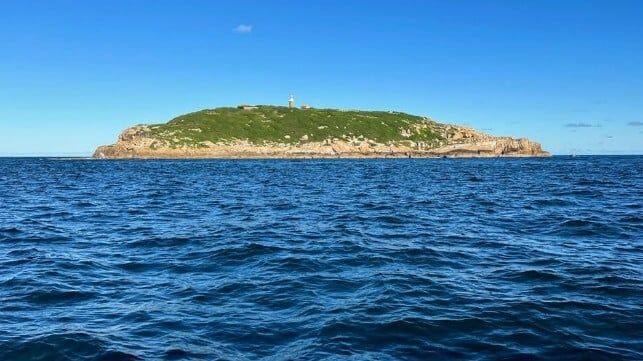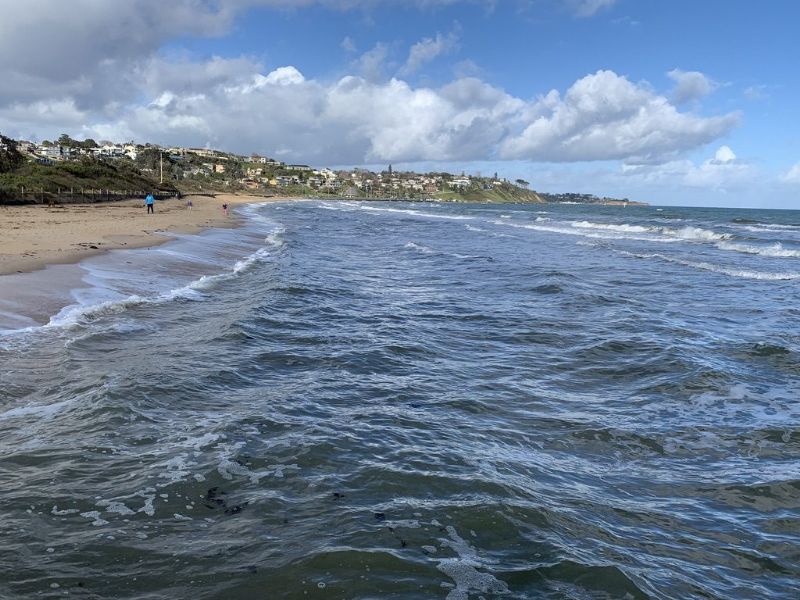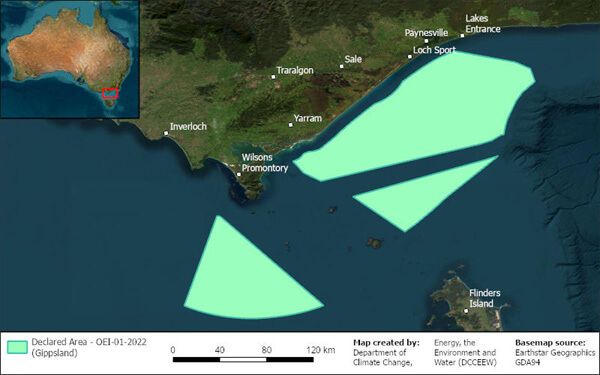
The Australian government followed up its previous effort announcing a second batch of feasibility licenses for its first potential offshore wind farms. Industry leaders including RWE, Iberdrola, and Corio Generation, are among the second batch of licenses being granted to explore proposed projects all located off the Gippsland coast in the state of Victoria.
Australia’s Minister of Climate Change and Energy Chris Bowen highlighted that they have now licensed a dozen projects to proceed to the next phase of development. He called it a key step forward to the program to launch offshore renewable energy as they doubled the number of licenses granted.
The Gippsland region was first designated in late 2022 as Australia’s first offshore region for wind energy. The Australian Parliament approved a series of laws to support the offshore electricity infrastructure in November 2021. The area was chosen because it has strong characteristics for offshore wind power generation including a steady strong wind pattern. The region in Victoria also has a well-developed power grid to support the integration of offshore wind power.
The feasibility licenses allow for detailed technical studies and surveys of the lease areas. It is the next step and the results of the studies would inform the design and the application for commercial licenses. It is expected that the first of the projects might be operational by 2030.
RWE for example reports that the license it was granted provides for up to seven years of seabed rights. The company will prepare its studies for the development and also received the right to apply for a commercial license. If the company was granted those rights it could then proceed to build and operate the wind farm for up to 40 years.
The site where RWE received its license is approximately 40 miles from the coast in the Bass Strait. The company said the site has the potential to generate up to 2 GW and that it could become operational in the first half of the 2030s.
Corio Generation reports it received a license for its 2.5 GW Great Eastern Offshore Wind project. They have proposed a project that would be located approximately 14 miles from the coast using fixed-bottom wind turbines. The company recently passed 17 months into a 24-month study of the marine environment. They report the project could be operational by 2032 and would have rights for more than 30 years.
BlueFloat Energy is receiving a license for its Gippsland Dawn Offshore Wind Project. The company highlighted that it has been active in Gippsland for more than a decade and it is proposing a 2.1 GW project. They said it would involve approximately A$10 billion (US$6.7 billion) of investment with the potential to start construction by 2029.
Additionally, the Navigator North Project, which would be developed in a JV between Origin and RES, would be located approximately 20 miles from shore. They believe this project would have a capacity of 1.5 GW.
Among the largest projects proposed for the region is Iberdrola’s Aurora Green which could have a capacity of approximately 3 GW. Ørsted has also proposed a multi-stage project which could reach a total of 4.8 GW.
The Ministry reported in May that it had received a total of 37 applications of which it planned to move forward with 12. Some of the others were overlapping or found to be less meritorious and were held aside. The target had been for 600 MW and they received applications for 19 GW.
In 2022, Australia defined six priority areas for offshore wind energy development. In addition to Gippsland, they are focusing on the Hunter region, Illawarra, the Southern Ocean, the Bass Strait near Tasmania, and potentially the first Pacific Ocean site off Banbury.



We use cookies to improve your experience. By continuing to use our site, you accept our Cookies, Privacy Policy,Terms and Conditions. Close X